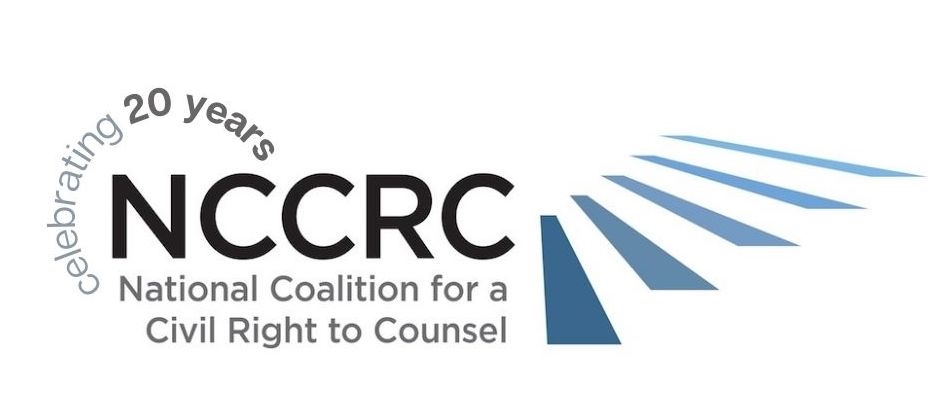Celebrating 20 years
February 24, 2023

The right to counsel in civil cases is a patchwork in the U.S. Every state has a right to an attorney in one or more types of civil cases, but no state provides it comprehensively across all basic human needs cases, and the areas where the right exists vary from state to state. This was the case in 2003 when the National Coalition for A Civil Right to Counsel (NCCRC) became the brainchild of advocates at the National Legal Aid and Defender Association’s annual conference.[1] Over the past 20 years, the NCCRC has provided invaluable support, research, and coordination for advocates seeking to expand the right to counsel for the most serious types of civil cases, like housing, domestic violence, child custody, and more. And while there is still a patchwork today, more people have a right to counsel in more places and civil legal areas than ever before, owing to the work and advocacy of NCCRC and participants. But there is a less obvious feat of the NCCRC over the last two decades: the civil patchwork of right to counsel is now visible, knowable, and thereby fixable.
Shining a light on the patchwork so that advocates could see patterns and identify holes was critical but not simple. The NCCRC, historically staffed solely by a Coordinator housed at the Public Justice Center,[2] developed a system to catalog all known rights to counsel in a status map available to the public at large, in state-specific and subject-specific memoranda for participants, and in a 50-state set of guides for judges co-developed with the American Bar Association. Additionally, in order to combat the misperceptions that the right to counsel in civil cases is either already established or at square one, the NCCRC wrote extensively on the status of the right to counsel in law review articles, op-eds, social media, and elsewhere. As a result, we helped clarify what a right to counsel is and what the landscape looks like, making rapid progress on the civil right to counsel front achievable.
Knowing what the civil right to counsel patchwork looks like has allowed us to support local, state, and federal right to counsel advocacy more effectively. We’ve responded to hundreds of pieces of legislation seeking to expand or constrict the civil right to counsel patchwork; contributed to dozens of litigation efforts implicating the civil right to counsel directly and indirectly; built out a hub of civil right to counsel research; educated thousands in presentations, publications, and the press; and, most importantly, connected advocates and efforts across the country to foster a civil right to counsel movement that shares knowledge, strategies, and trust. And by collecting and reporting on the incredible amount of activity happening around the country, especially in lesser-expected geographic areas, we’ve helped build enthusiasm for the effort by showing how many view the right to counsel as both desirable and achievable.
The NCCRC’s work, though, goes beyond raising awareness; we have helped advocates achieve systems-transforming victories in courts and legislatures. As a result, there are now constitutional rights to counsel for parents facing termination of their rights in Hawaii, Montana, New Jersey, and Ohio; for people facing incarceration for inability to pay fees/fines in Pennsylvania; for parents embroiled in child custody guardianship cases in Massachusetts; for people facing a driver’s license suspension due to inability to pay child support in New Jersey; and people facing curtailment of all their civil rights in a guardianship proceeding in Ohio and Indiana. And our legislative support work has helped advocates in 18 jurisdictions establish a right to counsel for tenants facing eviction.
As we look forward to the next twenty years, no matter how much the movement progresses, we’ll continue to spread understanding of the civil right to counsel patchwork, because bringing it to light makes the goal of patching it attainable.
Watch this video to learn more about the NCCRC’s work.
[1] For a thoughtful and thorough discussion of the NCCRC’s founding, check out John Pollock and Mary Deutsch Schneider, 10 Years in and Picking Up Steam: A Retrospective on the National Coalition for a Civil Right to Counsel, Clearinghouse Review: Journal of Poverty Law and Policy (May-June 2013).
[2] Deb Gardner (Coordinator from 2003-2009); John Pollock (Coordinator from 2009 – present).



